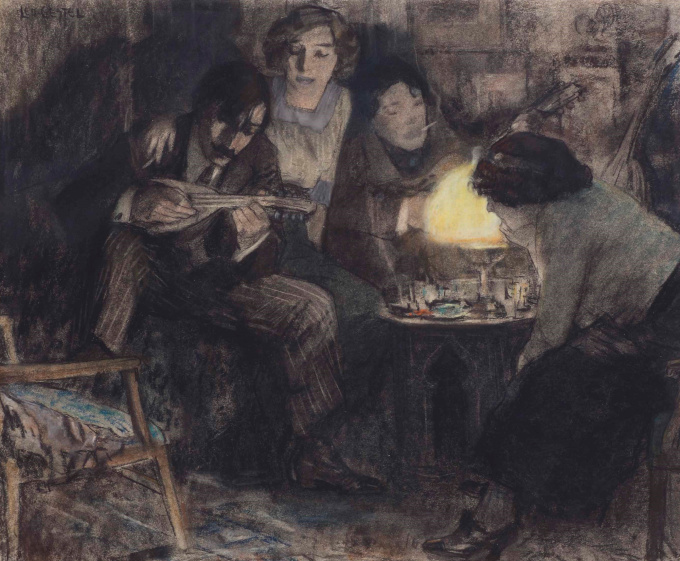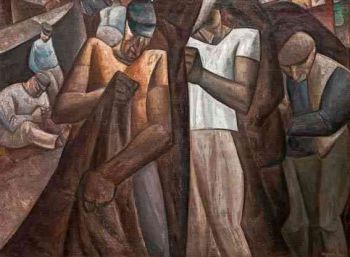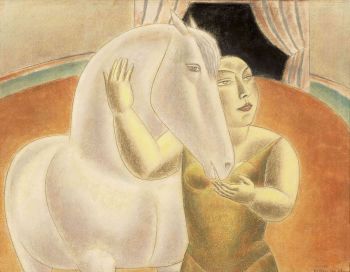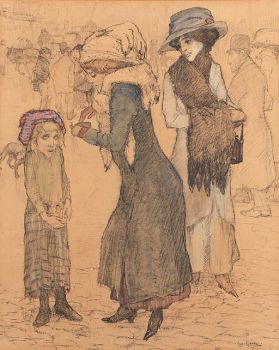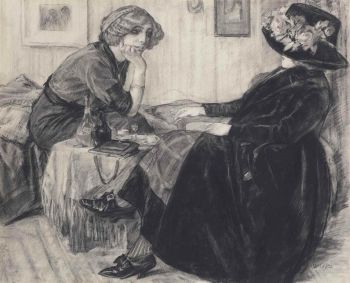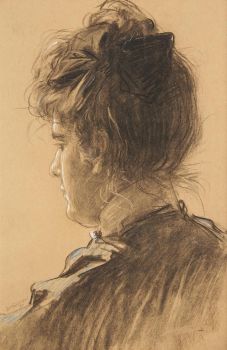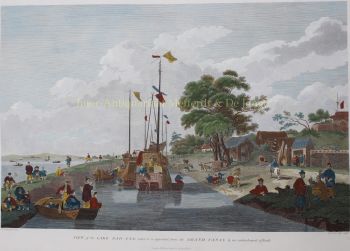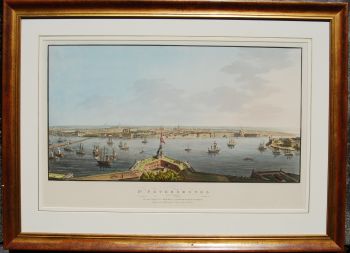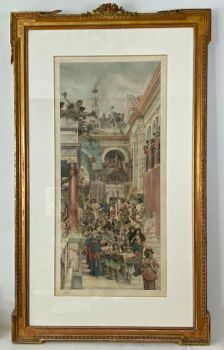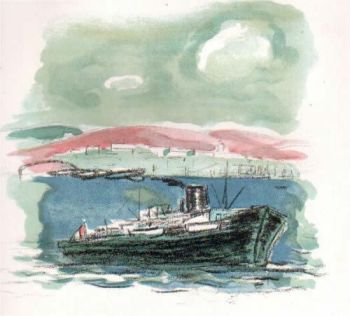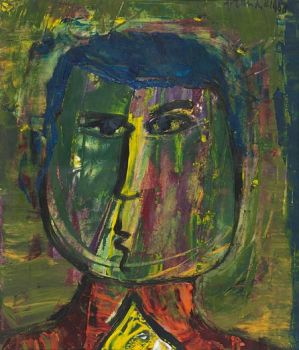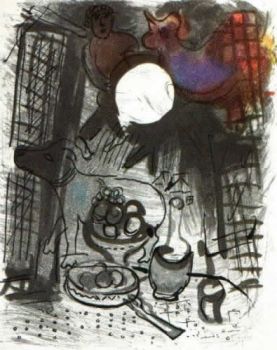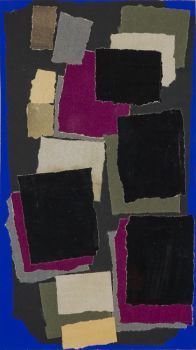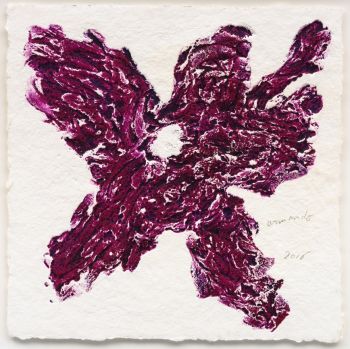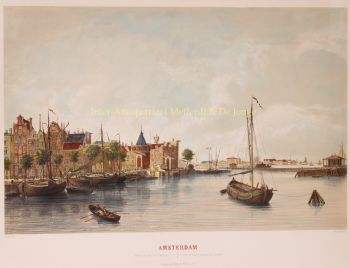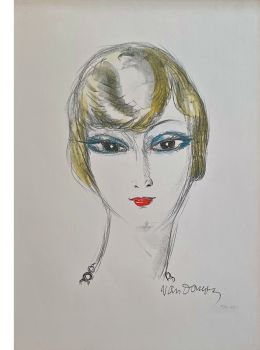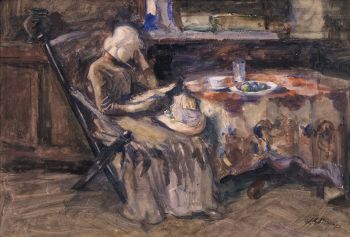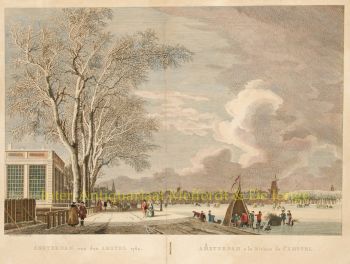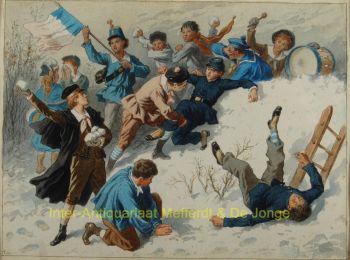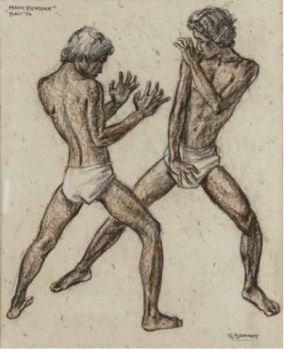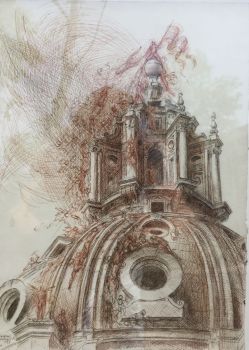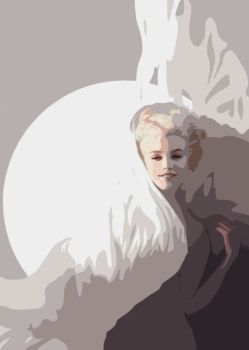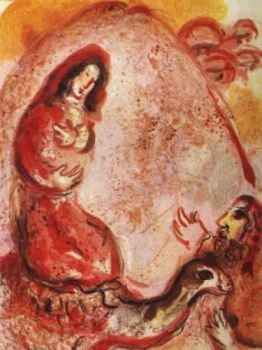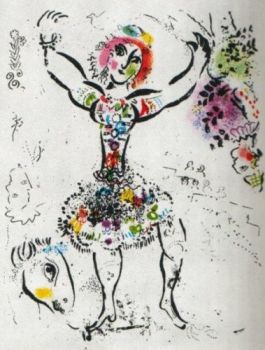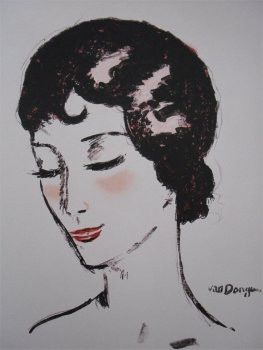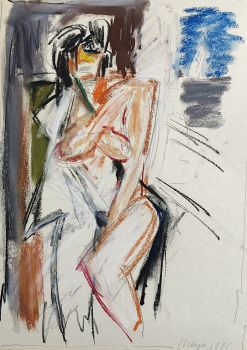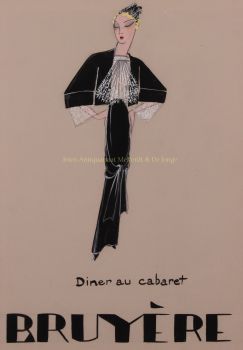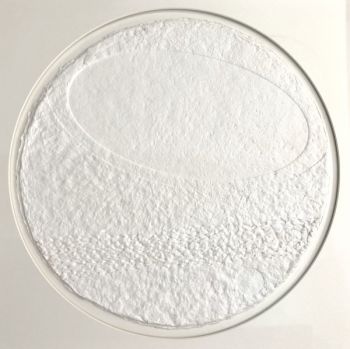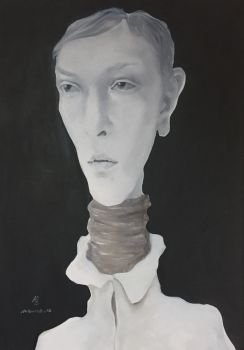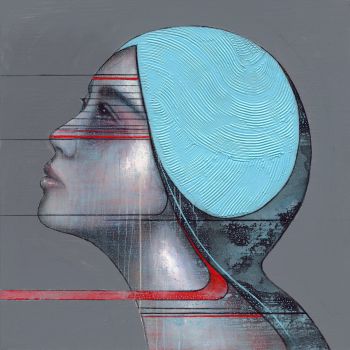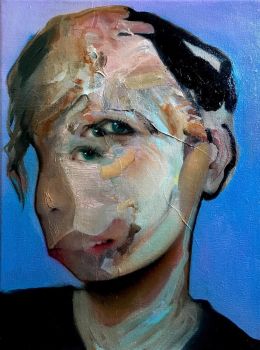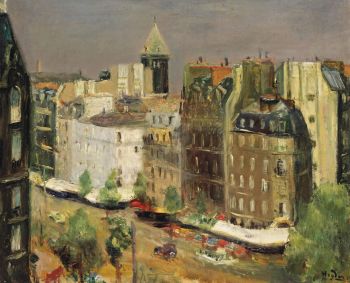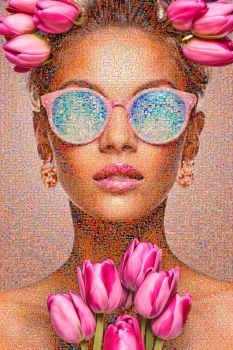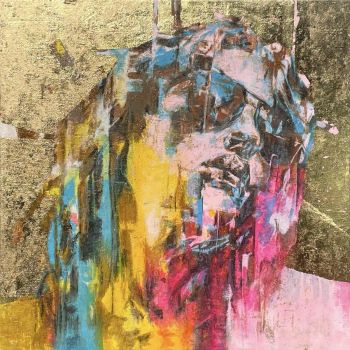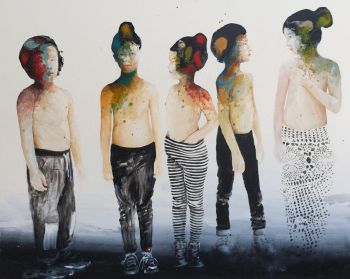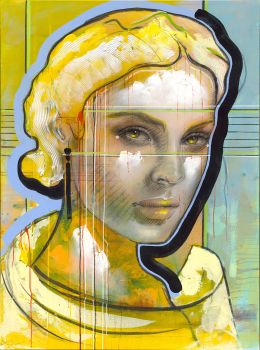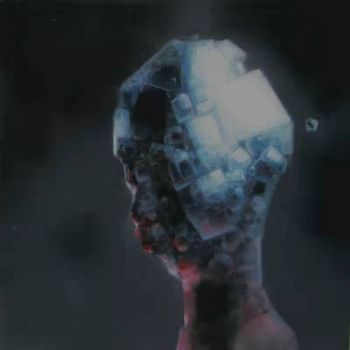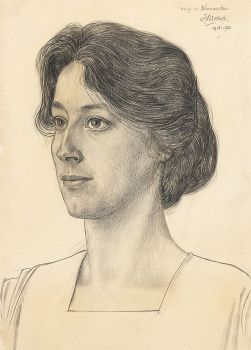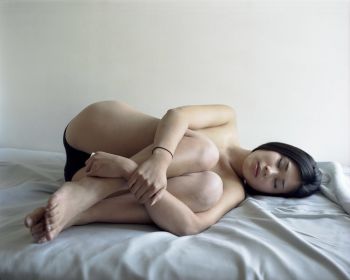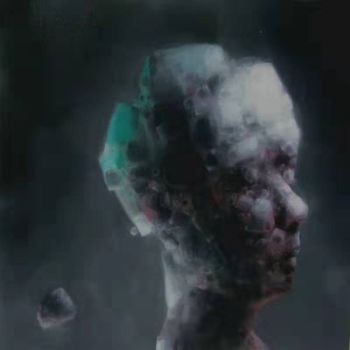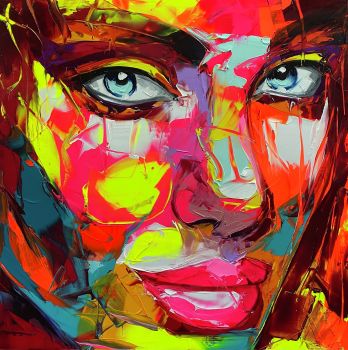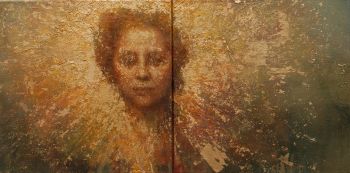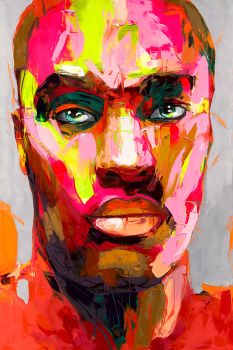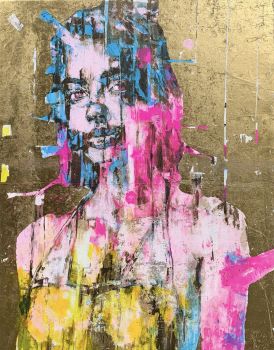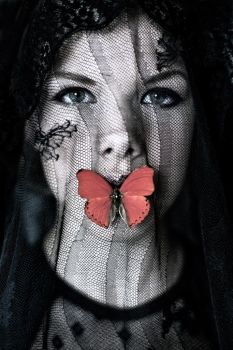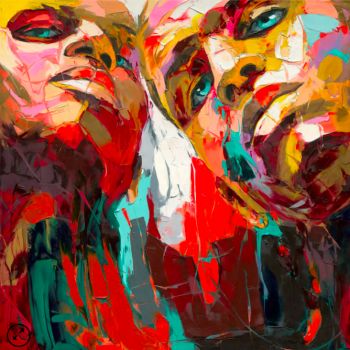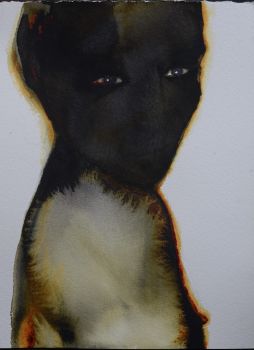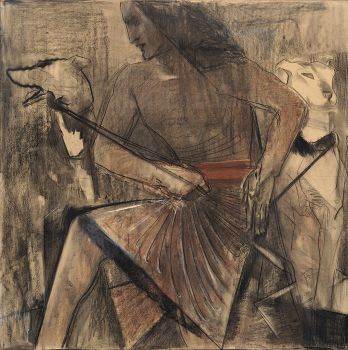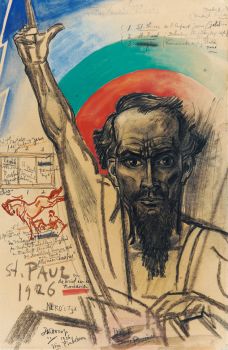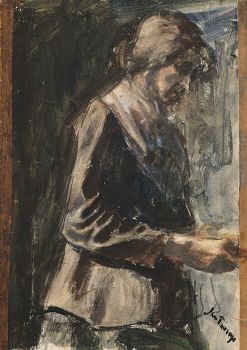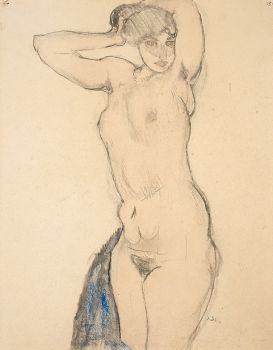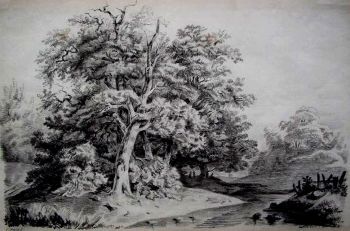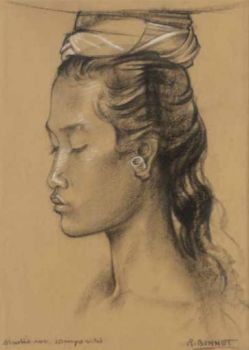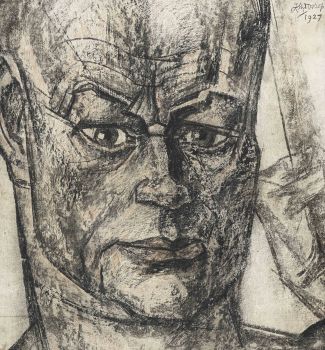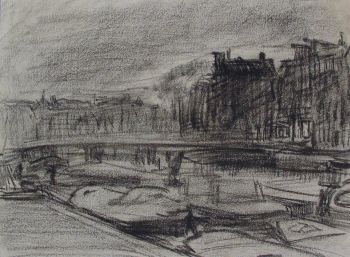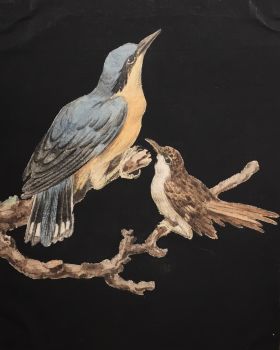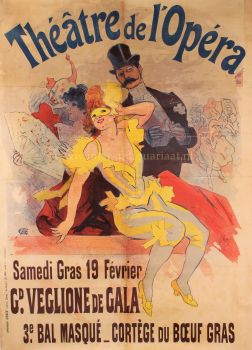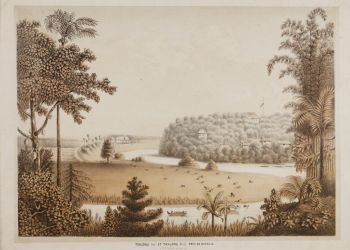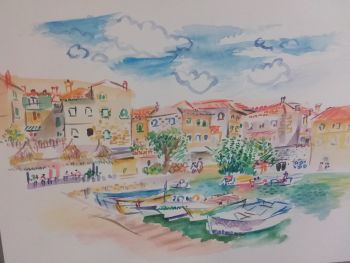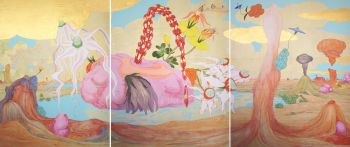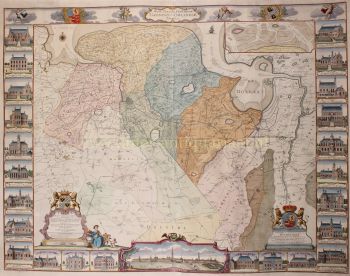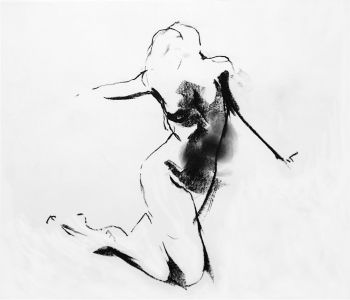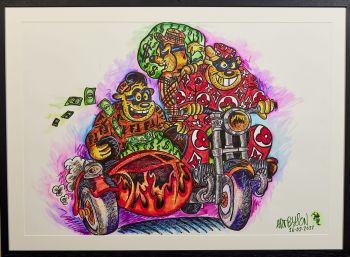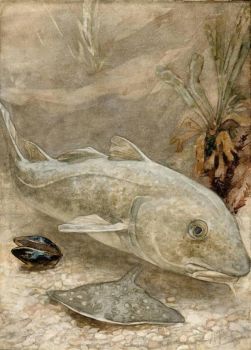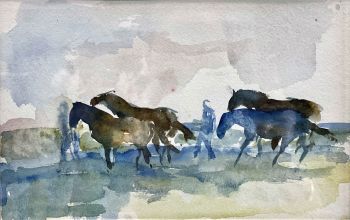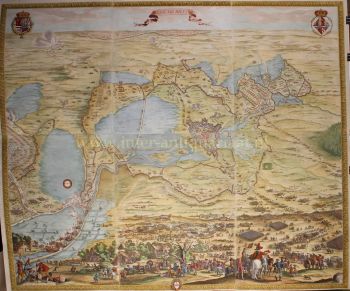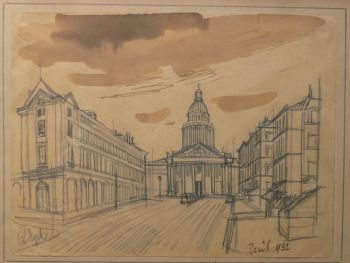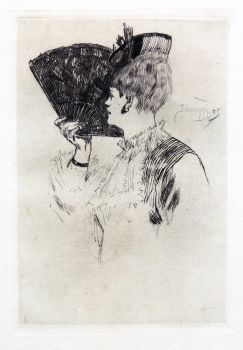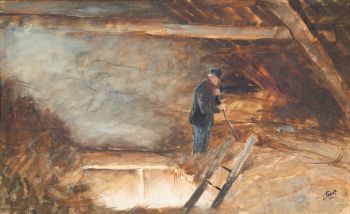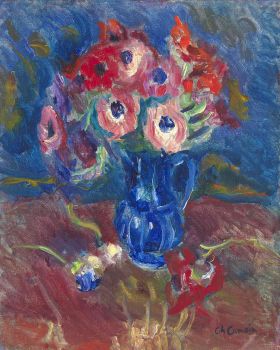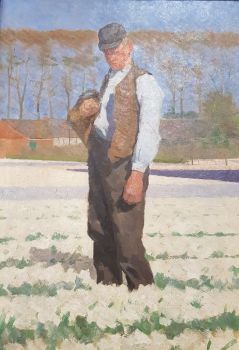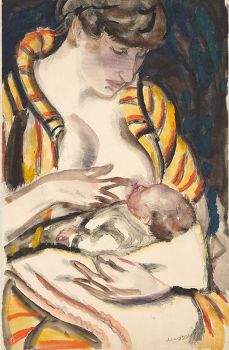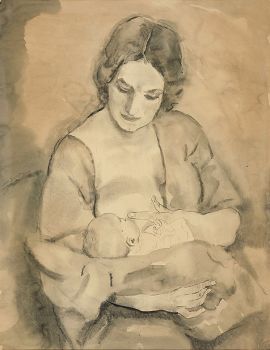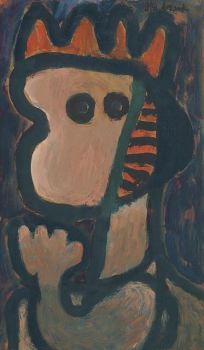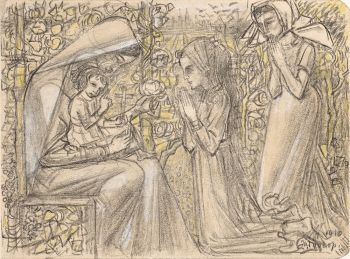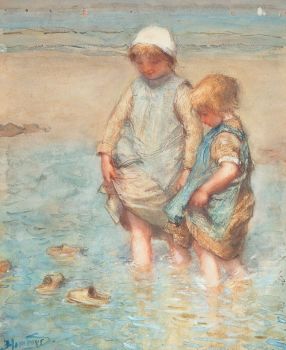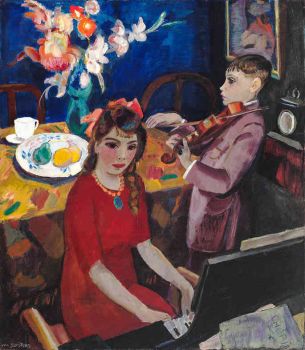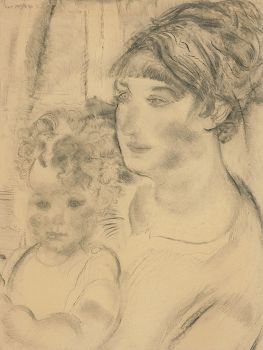Fuifavondje bij Boendemaker 1910
Leo Gestel
Black chalkPaperPastelChalkWatercolour
37 ⨯ 46 cm
ConditionExcellent
Price on request
Studio 2000 Art Gallery
- About the artworkGroup portrait of Jan Ponstijn (1883-1970), A Woman called Marie Boendermaker-Schoenmaker (1882-1947), Probably Dirk Filarski (1885-1964) And an Unknown Woman
Bergen 1910
Pastel, black chalk, watercolor on paper
37,0 x 46,2 cm.
Signed and dated: upper left 1910
Annotation verso: 'very... Boendermaker'
Provenance: Private collection, 's-Gravenzande; Art dealer Simonis & Buunk, Ede; Private collection Cees en Jarmila Kamerbeek, Amersfoort; Christie's (Amsterdam) 2017-06-12, afb. kleurenreproductie, lotnr. 10; Contributor the former Kamerbeek collection. Auction Glerum, The Hague, the Netherlands 'Modern and contemporary art' 24 november 1997, illustrated on page 16 of the catalog.
Exhibited: Jongkind tot van der Leck : de passie van een collectioneur : collectie Kamerbeek Museum Flehite , Amersfoort , 2007-01-21 - 2007-04-09 , no. 31; Gestel Singer Laren , Laren (Noord-Holland) , 2015-01-25 - 2015-05-25 , p. 25, 27; Piet Boendermaker: mecenas van de Bergense School Stedelijk Museum Alkmaar , Alkmaar , 2015-02-21 - 2015-10-25; Muziek! Vier eeuwen muzikale kunst Stedelijk Museum Zwolle , Zwolle , 2015-11-08 - 2016-01-31.
Literature: Kamerbeek/Seegers/Maurer 2007 , p. 108-109, nr. 31, met afb. (kleur).
This work is included in the archive of the RKD under Illustration number 1000313325. - About the artist
Leo Gestel who was born in Woerden on the 11th of November in 1881, was a Dutch Painter. His father Willem Gestel was also an artist. Leo Gestel experimented with cubism, expressionism, futurism and postimpressionism. Along with Piet Mondrian, he was among the leading artists of Dutch modernism. As first, Gestel was educated and influenced in art by his father, Willem Gestel, the director of an art school, and his uncle, Dimmen Gestel, who had painted with Vincent van Gogh.
While in Paris he came in contact with the avant-garde movement. In 1913 Herwarth Walden offered him the chance to exhibit work in the "Erster Deutscher Herbstsalon" in Berlin. It was typical for the artist Leo Gestel to spent the summer in Bergen, where he joined the Bergen School. In 1929 the majority of his works were lost when a fire destroyed his studio; he then moved to Blaricum. During his thirties, he was often ill due to suffering from stomach problems. In 1941, Leo Gestel died at the age of sixty after a suffering a long illness in Hilversum on the 26th of November in 1941.Leo Gestel developed a luministic art style at the beginning of his career, which he used to paint landscapes around Woerden in the Netherlands. Later in life, he switched to a more cubist art style and lastly when he was reaching the end of his life, he expressed more of an expressionist style. He was also influenced by Fauvism.
Gestel also liked to draw comic scenes and caricatures. He sent many postcards with funny drawings. In these drawings, he figured himself as the leading role in dire or bizarre situations, for example during moving. Due to financial problems, Gestel created advertisements for illustrated books.Public collections:
Stedelijk Museum Alkmaar, Alkmaar
Drents Museum, Assen
Museum De Hallen, Haarlem
Frans Hals Museum, Haarlem
Singer Laren, Laren
Kröller-Müller museum, Otterlo
Museum van Bommel van Dam, Venlo
Museum de Fundatie in Zwolle.
Are you interested in buying this artwork?
Artwork details
Related artworks
- 1 - 4 / 6
- 1 - 4 / 24
- 1 - 4 / 24
- 1 - 4 / 24
- 1 - 4 / 12

